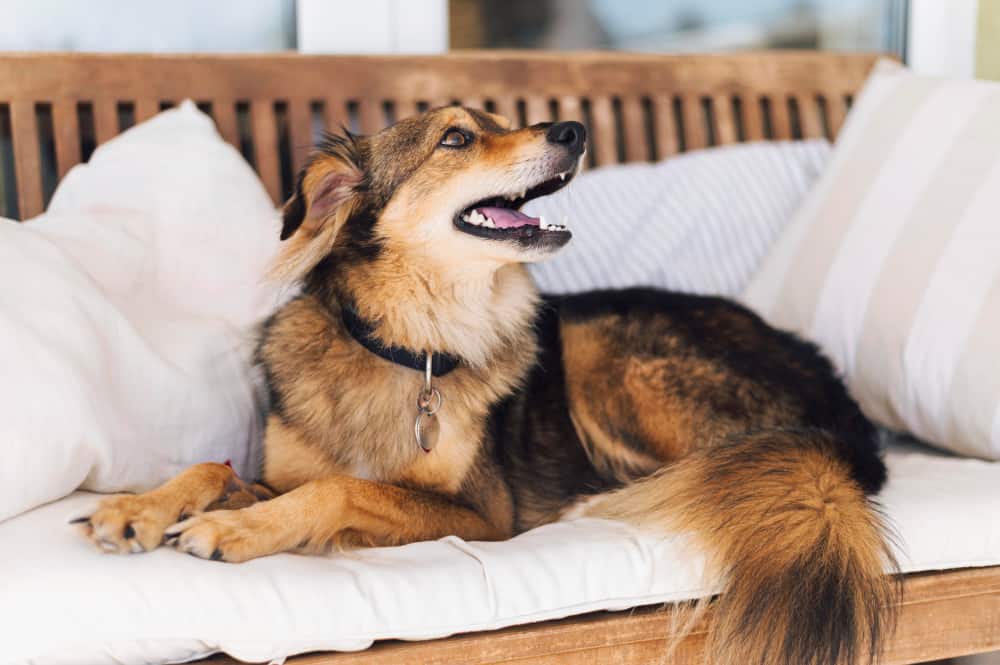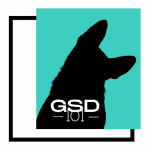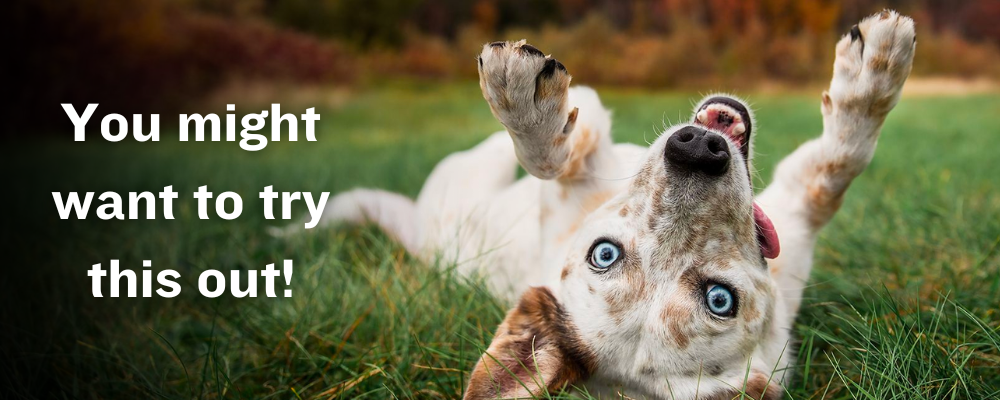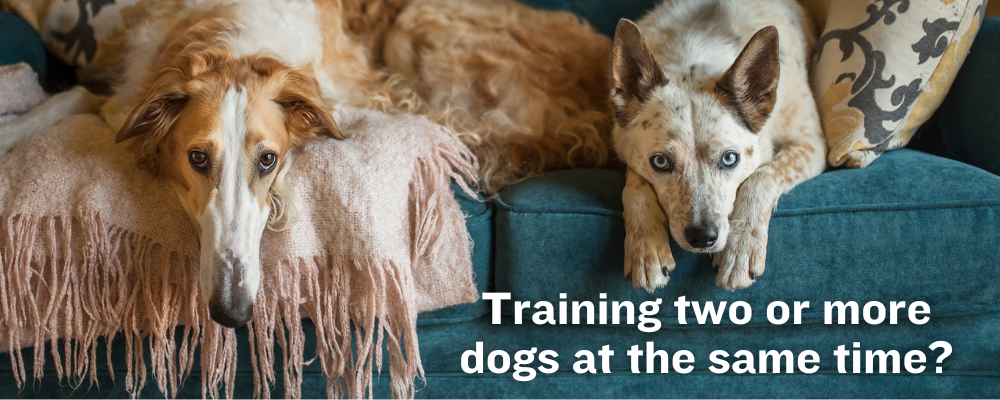With so many options to choose from, it can be overwhelming trying to pick the right collar for your large breed dog. There are several fabrics, widths and designs on the market to make it even tougher. It’s important to consider the purpose of the collar as well as the comfort for your dog.
A dog’s collar is intended to hold his identification but can be used to attach to a leash as long as he is not a strong puller. Pulling on a collar, especially one that doesn’t fit the dog properly, can result in damage to the trachea as well as create negative associations to the stimulus nearby.
Choosing the right collar for your large dog doesn’t have to be difficult if you follow this How To Guide on what to look for and what to avoid. Your dog can look his or her best, all while staying safe.
What does the best dog collar feel like?
This is the time you wish your dog could talk. If he/she does, it may sound like this:

There is nothing quite like wearing a comfortable collar. When I have a collar that fits me well and is made of soft, plush material, it feels like I am being treated with the utmost care and respect.
The collar feels secure, but not too tight, and it doesn’t rub or chafe against my skin. I can move around freely and enjoy all of my activities without any distractions or discomfort.
Wearing a comfortable collar makes me feel happy, confident, and loved, and I am always ready to show off my stylish accessory to all of my friends.
Do large dogs need special collars?
Large dogs may benefit from collars that are designed to accommodate their size and strength. It is important to choose a collar that is sturdy, well-made, and comfortable for your large dog to wear.
A collar that is too small or flimsy may break or cause discomfort, while a collar that is too large may be too loose and slip off.
The best collars for large dogs
You’re searching for a new collar for your large dog, so Amazon may be the first place you look. This is a review of the most commonly purchased collars that are safe for your large breed.
Best value with locking buckle- Taglory Reflective Dog Collar
This adjustable nylon collar comes with a safety locking buckle, is neoprene padded and has reflective stitching.
Easiest to customize – Joytale Reflective Personalized Dog Collar
These nylon collars have a reflective design and are adjustable with a plastic clip. They are also able to be customized with your dog’s name, phone number or whatever you choose.
Most comfortable padding – Joytale Neoprene Padded Dog Collar
These are a traditional style collar, that are soft padded and fast drying with reflective stitching. They are nylon with a metal buckle.
Most comfortable ABS quick release clip – Joytale Reflective Dog Collar
With soft neoprene padding, these adjustable nylon collars also have an easy to release plastic clip. They have reflective nylon stitching and are fast drying.
Most comfortable handle – DAGANXI Tactical Dog Collar
This adjustable, tactical style nylon collar has a handle and a heavy metal buckle. It also comes with patches and an airtags case.
Best warranty – Heavy Duty Collar with Handle
This tactical style collar is nylon/polyester with padded neoprene and is 1.5” wide. It has a handle and a double metal buckle. It has 2 heavy duty D ring and reflective stitching, with a 2yr warranty.
Best for training – Country Brook Petz Martingale Collar
This is a 1” thick, heavy duty, nylon adjustable martingale collar. It is completely nylon without clips or buckles. It’s a martingale-style collars with no buckle, giving you gentle control over your pet. Tons of color variation availble to choose from.
What kind of collar is best for a big dog?
The best collar for a big dog is one that is made of a material appropriate for its intended use (water, hiking, etc) and has a strong and durable clip or buckle to accommodate his size.
What type of collar is most comfortable for large dogs?
Every dog is shaped differently, so what’s comfortable for one dog may not be comfortable for another. The most comfortable collars will be soft, lightweight, and the appropriate width for your specific dog’s neck.
Do large dogs need different collars for training?
Collars are not a training tool, as they are intended to simply hold the dog’s ID. Any added pressure to the throat in any circumstance can result in both physical and psychological damage.
Is a harness or collar better for large dogs?
A harness is always a better choice when you need to attach a leash to your dog. A dog’s neck is a very sensitive area and collars pose risks.
Should dogs wear collars in the house?
If you have a multi-dog home, it’s best for them to be naked while in the house in case of rough play. If you do require your dog to wear a collar even if he’s the only dog, a collar with a breakaway clip is best in case it gets caught on something while unsupervised.
Should I take off my dog’s collar at night?
We take all kinds of clothing off at night to sleep and it’s no different for our dogs. It’s best to have it off at night even if just for relief from having to wear it all day.
What is the two-finger rule for dog collars?
A properly fit collar means that you are able to fit your index and middle finger between the collar and your dog’s neck and have it be snug. Not too loose to slip off but not too tight to cause discomfort or difficulty breathing.
How do I choose which collar is right for my large dog?
Choosing the right collar for your large breed dog can be a daunting task. Not only do you want to find a collar that is functional and comfortable for your dog, but you also want to make sure it is durable and safe. Here are some things to consider when choosing a collar for your large breed dog:
- Size and fit: It is important to choose a collar that fits your dog properly. A collar that is too loose can easily slip off or become caught on something, while a collar that is too tight can cause discomfort or even injury to your dog. Measure your dog’s neck and consult the sizing chart provided by the collar manufacturer to find the right size.
- Material: Collars can be made from a variety of materials, including leather, nylon, and neoprene. Leather collars tend to be more durable and comfortable, but they can be expensive and may not be suitable for dogs who swim frequently. Nylon collars are a good budget-friendly option, but they may not be as durable as leather. .
- Type: There are several types of collars to choose from, including standard collars, martingale collars, and harnesses. Standard collars are the most common and work well for everyday use. Martingale collars are a good option for dogs who are a flight risk, as they have a tightening mechanism that helps prevent the dog from slipping out of the collar. Harnesses are a good option for dogs who pull on their leash or have respiratory issues, as they distribute the pressure across the chest rather than the neck.
- Safety features: Look for a collar with safety features such as a quick-release buckle or reflective striping. The quick-release buckle allows you to quickly and easily remove the collar in an emergency situation, while reflective striping can help make your dog more visible at night.
- Personalization: Many collars come with the option to add your dog’s name and your contact information in case your dog gets lost. This can be a lifesaver in the event that your dog becomes separated from you, so it is a good idea to take advantage of this feature.
In summary, choosing the right collar for your large breed dog is an important decision. Consider the size and fit, material, type, safety features, and personalization options when selecting a collar for your furry friend. With a little bit of research and consideration, you can find the perfect collar for your large breed dog.
How to properly fit a collar
It’s important to find the right size of collar for your dog. If it’s too tight, your dog may have difficulties breathing but if it’s too loose, there’s a risk of it getting caught on trees, fences, etc. This is a helpful tutorial on how to properly fit both an adjustable and traditional collar:
Why did shock, choke and prong collars not make the list of most recommended collars for my large dog?
Prong, choke, and shock collars (often referred to as e-collar or stim collars) are not recommended for use in any context, by any educated professional trainer, behavior consultant or veterinary behaviorist.
These kinds of aversive tools have been proven to cause both physical and emotional damage to the dog, often resulting in aggression, anxiety and fear.
Aversive collars are punishments
Prong and shock, as well as choke chains and slip leads (aka soft choke chains) work via escape/avoidance. In order words, they are very similar to punishment.
The dog will “obey” in order to avoid the discomfort/pain of the aversive. It’s the same reason why we slow down when we see a police car, but speed up once it’s gone. They also only “work” when they’re on or near the dog.
Aversive collars only provide temporary results
These collars hurt, as they were manufactured to do, when the button is pushed on the shock collar or leash pressure is increased on the prong or choke collar. If they didn’t hurt, the behavior you’re trying to eliminate (leash pulling for example) would either maintain or increase.
Positive punishment is defined as adding something to decrease a behavior. When the dog pulls, more pressure is applied to the aversive collar in an effort to make him stop pulling. Unfortunately though, since both operant and classical conditioning are always working together, it may also be creating very negative associations to any nearby stimulus.
For example, when your dog pulls toward another dog on a walk the aversive collar tightens and it hurts. What we risk is forming a negative (painful) association to other dogs. This is how we can create leash reactivity and aggression, quickly.
It’s best to avoid the use of aversive tools and work with a qualified professional instead, if you’re experiencing problem behaviors.
Conclusion
With so many collar styles and fabrics available, it may be overwhelming trying to decide which one is best for your large dog. It’s important to take your dog’s safety and comfort into consideration first, then choose a style that’s most appropriate for your adventures together.
Further Questions
My trainer recommended that I use a prong collar to walk my large dog because he pulls, will that help?
A prong collar may help your large dog to stop pulling, but the pain/discomfort as a result of their use can also cause aggression, fear and anxiety. Prong collars hurt and that’s what keeps them from pulling. If your trainer suggests using a prong collar, it’s best to search for another trainer who will offer a solution rather than a painful bandaid.










